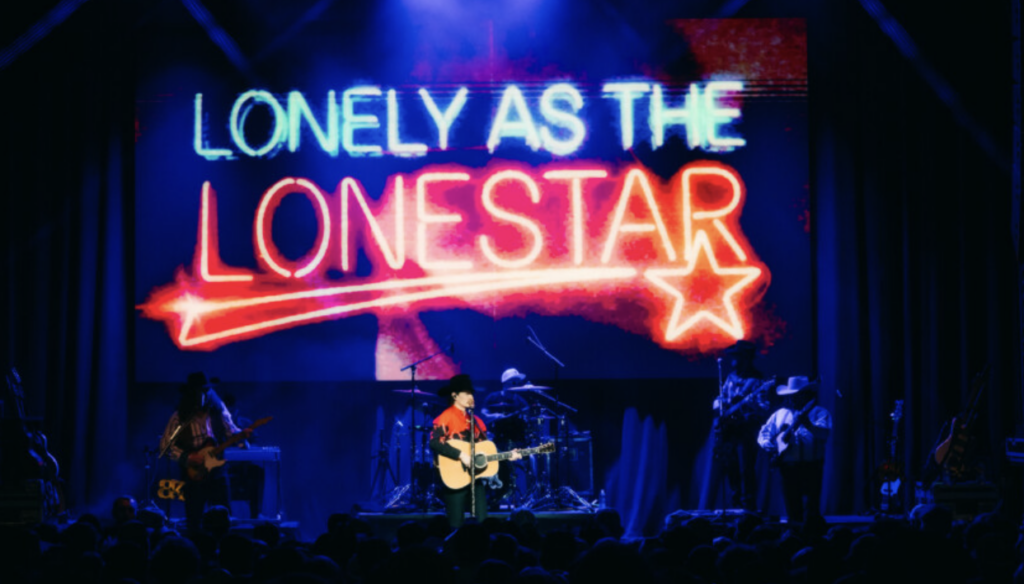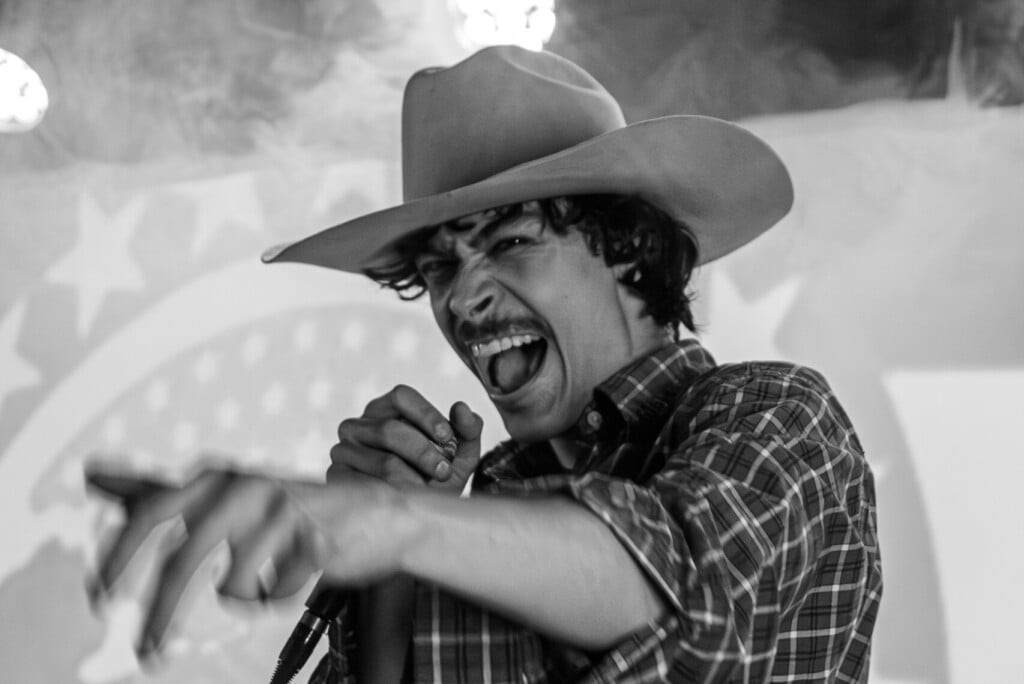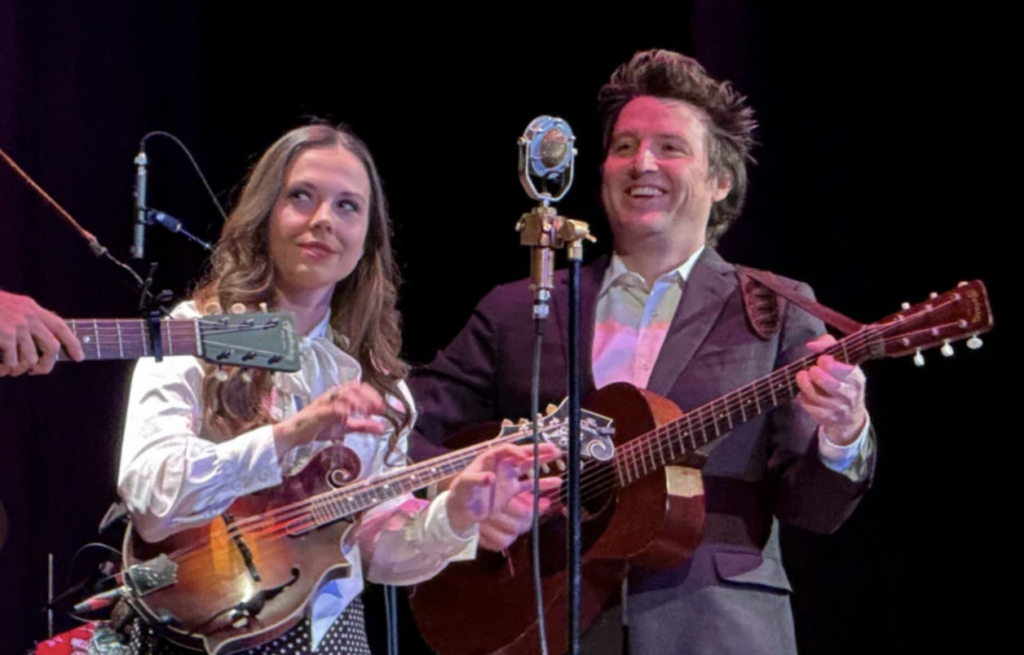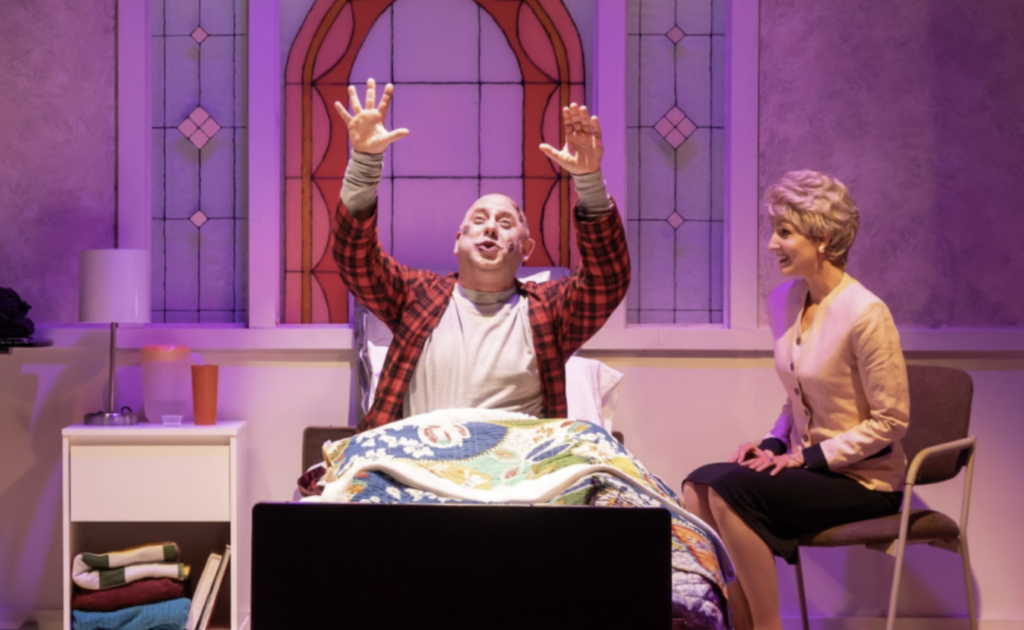Bitch on her return to Kill Rock Stars with Bitchcraft ahead of Sunday’s recordBar show
Musician Bitch came to the attention of music fans when her former duo, Bitch and Animal, released two albums, Eternally Hard and Sour Juice and Rhyme, on Ani DiFranco’s Righteous Babe Records and routinely opened for the iconic singer-songwriter. They split in the mid-’00s and Bitch went solo, releasing Make This Break This on Kill Rock Stars in 2006, before putting out a series of albums via Los Angeles indie Short Story Records over the next decade.
In 2022, nine years after her last release, In Us We Trust, Bitch returned to Kill Rock Stars with the lauded Bitchcraft, which saw the musician move into a new sound, dubbed “poet pop,” seeing her pair her electric violin with danceable synths and uncannily addictive beats. It’s an utter gem of a record, and the musician brings that tour to Kansas City when Bitch stops at the recordBar on Sunday, October 15.
We spoke with Bitch by phone ahead of the show about her return.
The Pitch: You’re back on Kill Rock Stars again. How’d that come about after almost over 15 years?
Bitch: I know, isn’t that random? I put out “You’re the Man” under a different title, and Slim [Moon, Kill Rock Stars co-founder] heard it and called me. He was like, “I love this kind of poppy direction you’re going in and if you’d be interested in making this a full album, we want to put it out.” So that’s what happened.
You know you’ve put out a good song when somebody’s like, “Can we have you back, please?”
I know. Talk about validating. I know. They were starting to do way more comedy there for a long time and had kind of gone in a different direction with the label for a while so yeah, it was it was great to come back full circle.
This is also your first album in a good long while. Is there a reason behind the break in recording?
I never stopped recording. It’s just that I stopped sharing for a little bit. I felt like I had to kind of hide for a while. You know, it’s brutal out there and I was in this process of releasing albums every two years and touring and all of that stuff. I think I got burnt out and I just needed to retreat. I left New York City, I went to this cabin in the woods and it’s actually where I started writing Bitchcraft and was just kind of in this mode.
It was really liberating because I thought, there’s a chance I’ll never share this with the world. I was kind of that burnt. I was approaching it as a way to–okay, what would I make just for me, to be the fullest expression of what I want to express, without deadlines, without any other pressures. I turned to my violin, which is my earliest love language, and I built it from there.
When I hear “cabin in the woods,” I expect a Bon Iver sort of situation. I do not expect what Bitchcraft is. It’s very danceable and just sounds like the exact opposite of a cabin in the woods album.
I know, it’s like when people meet me and they’re like, “Wow, I wasn’t expecting you to be so nice. Your name is Bitch.” It must be just part of my brand: just like do exactly what you wouldn’t expect.
How does one record and create a very danceable, very pop-leaning album in a cabin in the wood?
Well, first of all I was working with people long distance. I was collaborating, sending sending tracks out, that kind of thing and in the beginning there I was literally having to drive to the town library to get on the internet because all I had in the cabin was dial up. It was very old world. I would drive to the small town library, get on their internet and upload files to Roger Paul Mason, who I was collaborating with long distance.
We started from there. I was demoing things in the cabin, making string arrangements. A lot of the strings that you hear on the record were recorded there and I would just upload them to him, and then I would have to drive to the library to download what he worked on, and keep going. Then eventually, I moved to L.A., and I started having a real internet connection.
As gone along, you are not just a musician. You are also a producer and occasionally an actor, most recently as part of Alison Bechdel’s Dykes to Watch Out For, which was turned into an Audible series. How did you become part of it?
My partner, Faith Soloway, got commissioned to actually write the theme song. They’re a composer and is most known for their work on Transparent. Susie Bright called Faith, and said, “We want you to compose a theme song.” Faith pulled me in as a collaborator, and it ended up not being used as a theme song, unfortunately, but it began a really fun collaboration between us and then with Susie and then, I got to audition for a role, so I had my little role in it and it was a really fun project to be part of.
You haven’t been in a lot of things, but Dykes to Watch Out For is an adaptation of a very seminal comic strip, and then you were also in Shortbus, which is a very well known film. You seem to choose your parts very carefully.
That’s a nice way to say it.
Yeah, I mean, there are just things that kind of came to me, although Shortbus, I went on an audition for it. But there are things that come to me through friends or word of mouth, things like that. I would love to be doing more acting. It’s definitely kind of something I’m casting a spell for in the next years here. I feel proud of the projects I’ve been part of, and excited to do more.
I can hear it in your voice that this is something you really enjoy.
Yes! Well, and my former band Bitch and Animal, we met at acting school, zo those are our origins. When we started Bitch and Animal, thought, we thought we were making feminist theater and we just so happened to have instruments. Once we started touring with Ani [DiFranco] and doing that whole musician life, people started referring to us as a band. At first, we were like, “A band? What? We’re theater.” It was a slow come around to realizing like, “Oh right, we’re musicians.
Embracing your musicianship, what is it like touring now?
Oh my gosh, it has been so much fun. I have been on a wild broomstick ride. I think part of the retreating–I think in any job, people can get sick of their job. There’s drawbacks to everything. Touring is brutal. You’re not sleeping in your bed every night, things like that. I feel like the human condition, or maybe it’s just me, is that you can kind of resent anything that you’re doing a lot. I had just gotten to this place where I was just burnt out, like I said.
And then, you stop doing it for a while, and it’s relaxing for a while, and you’re so happy to be a homebody. I always say I have a super extrovert side of myself and then I have a super introvert hermit, which is the recording side of my personality. I love the process of recording ’cause I just get to kind of tuck in and then touring is the extrovert side.
I had a lot of fear actually before I released the album and going out on tour again. Like, “Will people be there?” Just all the worries. I’ll tell you, first of all, it was really fun to miss it because that’s eventually what I came around to. I missed it, you know, and then to get to do that thing with that perspective instead of, “Oh, I have to go on tour.”
I’ve just changed my thinking around it. I get to do this and it is such a joy going from town to town. I was just reminded ow much I did that in my 20s and 30s, and how many ports I have all over the country of great people and interesting places. It’s like I know a side of the U.S. that not a lot of people get to know.
Bitch plays RecordBar on Sunday, October 15 with Crys Matthews. Details on that show here.





